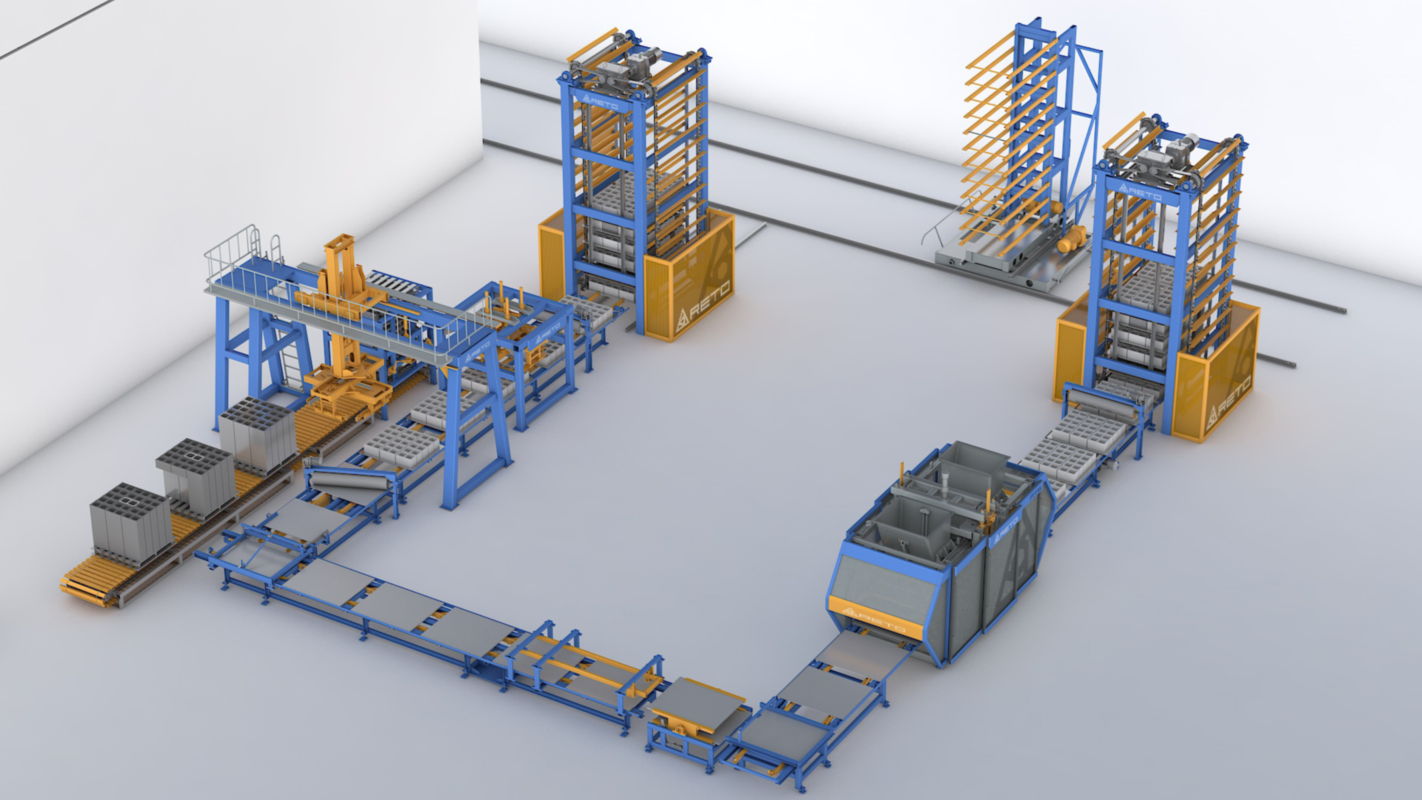Block machinery contributes significantly to the production of thermal blocks, which are specifically designed to provide enhanced insulation properties.
Material Selection: Block-making machines are adapted to handle materials suitable for thermal blocks. These materials often include lightweight aggregates, insulating materials like expanded polystyrene (EPS), or additives that enhance thermal resistance.
Mixing and Preparation: The machinery is equipped to mix and prepare the specialized materials required for thermal blocks. It ensures accurate proportions and uniform mixing to achieve the desired insulation properties.
Molding and Compaction: Block-making machines mold the prepared material into specific shapes and sizes suitable for thermal blocks. Techniques such as compression, vibration, or hydraulic pressure are used to compact the material uniformly to achieve desired densities and insulation qualities.
Design for Insulation: Thermal blocks often have specialized designs that incorporate air pockets or voids to enhance insulation properties. The block machinery allows for customization of block designs that optimize thermal performance.
Precision and Consistency: These machines ensure precise dimensions and consistency in the production of thermal blocks, critical for maintaining insulation properties and allowing for easy installation.
Quality Control Measures: Quality control mechanisms integrated into the machinery monitor and ensure the quality of thermal blocks during production. This includes checking for density, porosity, and other parameters related to insulation performance.
Curing and Hardening: After molding, thermal blocks might require specific curing processes to ensure optimal insulation properties. Block-making machines may include specialized curing systems to facilitate this process.
Efficient Production: Block machinery is designed for efficient production rates, enabling the continuous manufacturing of thermal blocks to meet demand while maintaining insulation performance.
Environmental Considerations: Some thermal block production processes focus on environmentally friendly materials and production methods. Block machinery can be adapted to accommodate such eco-friendly practices.
The role of block machinery in thermal block production is crucial for ensuring that these blocks possess the necessary insulation properties required for various construction applications. The machinery's precision, consistency, and efficiency contribute to the production of high-quality thermal blocks used in buildings to improve energy efficiency and reduce heating and cooling costs.
Block machinery is well-suited for producing hollow blocks, which are widely used in construction due to their lighter weight and better insulation properties.
Here's how block machinery handles the production of hollow blocks:
Material Preparation: Block-making machines handle the preparation of materials required for hollow blocks. These materials typically include aggregates, cement, building block machine water, and sometimes additives for enhanced properties.
Mixing: The machinery ensures precise mixing of materials to achieve the desired consistency and properties. Proper mixing is crucial for uniformity and strength in hollow blocks.
Molding and Compaction: Block-making machines utilize molds designed specifically for hollow blocks. The machinery compacts the material mix into these molds, creating the hollow block's structure with cavities or voids inside.
Design and Mold Customization: These machines can accommodate various designs and sizes of hollow blocks. Interchangeable molds or attachments allow for customization according to specific hollow block designs and sizes required for construction projects.
Precision and Consistency: The machinery ensures precise dimensions and consistency in hollow block production. This uniformity is vital for structural integrity and ease of construction.
Quality Control: Block-making machines incorporate quality control mechanisms to monitor the production process. Sensors and inspection systems detect defects and verify the quality of hollow blocks during and after production.
Curing and Hardening: Similar to other types of blocks, hollow blocks might require curing and hardening processes to achieve the desired strength. The machinery may include curing systems to facilitate this process.
Optimized Production: Block machinery is designed for efficiency, enabling high production rates of hollow blocks. This efficiency helps meet demand while maintaining quality.
Material Efficiency: Hollow blocks reduce material usage compared to solid blocks, and block machinery ensures efficient utilization of materials, minimizing waste.
Automation: Advanced block-making machines may feature automation for various processes, reducing manual labor and ensuring consistent production quality.
Block machinery's adaptability, precision, and efficiency make it well-suited for handling the production of hollow blocks. These blocks offer versatility in construction, catering to various structural and insulation needs while leveraging the machinery's capabilities for optimized production.

Previous: How to Maintain foam molding machine
Copyright:@2020-2021
Comments Please sign in or sign up to post.
0
0 of 500 characters used